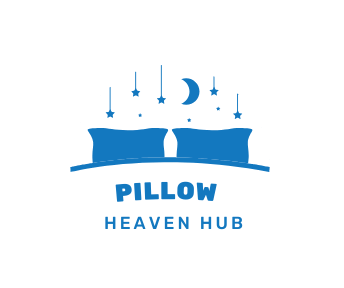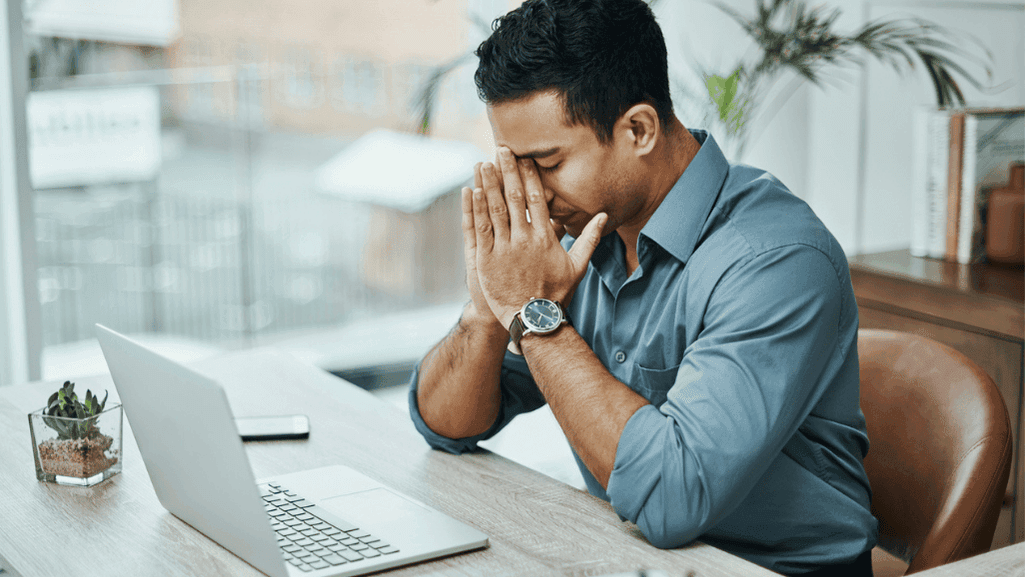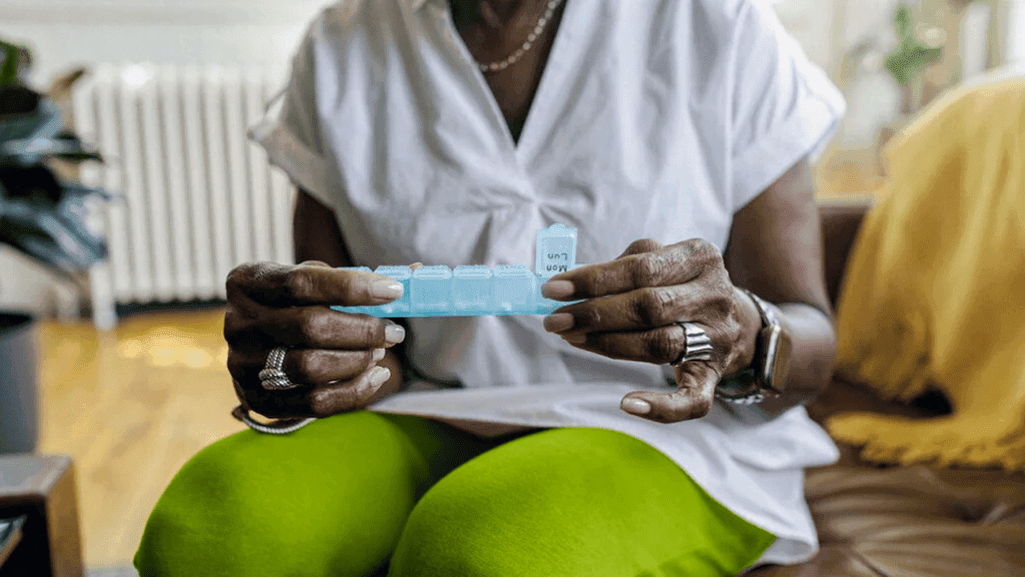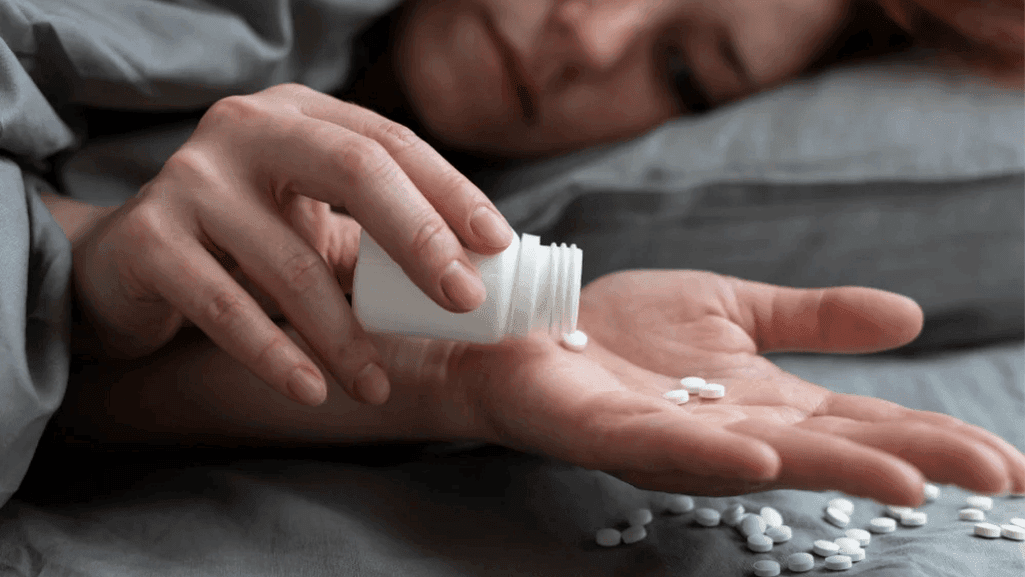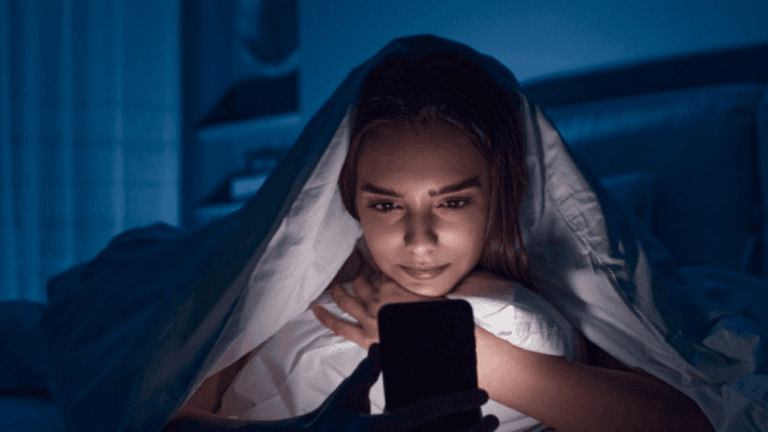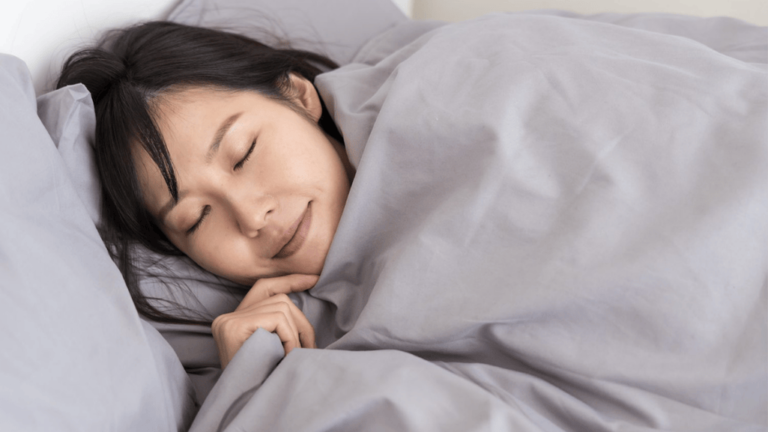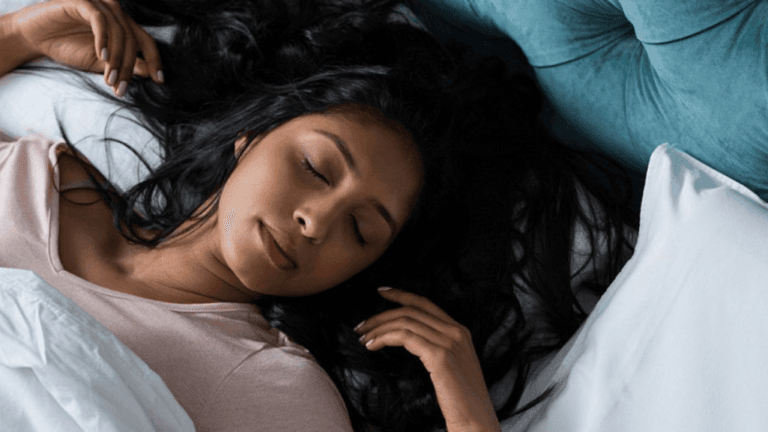In today’s fast-paced world, anxiety and insomnia have become significant public health concerns, affecting a large portion of the adult population. With one-third of adults in the United States not reaching the recommended amount of sleep and about 20% living with a mental illness, it’s crucial to find effective solutions. Prescription sleep medications and anti-anxiety drugs can be a lifeline for those struggling with these debilitating conditions.
When lifestyle changes and behavioral therapies alone are not enough, healthcare professionals may prescribe meds for insomnia and anxiety. These prescription sleep aids and insomnia supplements can help individuals regain control over their sleep patterns and manage their anxiety symptoms. From non-benzodiazepines like zolpidem (Ambien) and eszopiclone (Lunesta) to benzodiazepines such as diazepam (Valium) and alprazolam (Xanax), there are various options available to suit individual needs.
Antidepressants with sedating effects, such as trazodone (Desyrel) and mirtazapine, can also be prescribed off-label to treat insomnia and anxiety. Additionally, melatonin-like medications like ramelteon (Rozerem) are recommended for people who have difficulty initiating sleep. Working closely with a healthcare provider is essential to determine the most appropriate treatment plan, considering factors such as medical history and potential side effects.
Key Takeaways
- Anxiety and insomnia are significant public health concerns affecting a large portion of the adult population.
- Prescription sleep medications and anti-anxiety drugs can be effective in treating these conditions when lifestyle changes and behavioral therapies are not sufficient.
- Non-benzodiazepines, benzodiazepines, antidepressants with sedating effects, and melatonin-like medications are commonly prescribed meds for insomnia and anxiety.
- Working closely with a healthcare provider is crucial to determine the most appropriate treatment plan, considering individual needs, medical history, and potential side effects.
- Finding the right combination of lifestyle changes, behavioral therapies, and medication can help individuals regain control over their sleep patterns and manage their anxiety symptoms effectively.
Understanding the Connection Between Anxiety and Insomnia
Anxiety and insomnia are two conditions that often go hand in hand, creating a complex and challenging situation for those who suffer from them. The connection between anxiety and insomnia is a strong one, with each condition having the potential to exacerbate the other. In fact, a longitudinal epidemiological study of young adults found that sleep disturbance and psychiatric disorders, including anxiety, are closely linked (Breslau N., Roth T., Rosenthal L., Andreski P., 1996).
The Vicious Cycle of Anxiety and Sleep Deprivation
When an individual experiences anxiety, it can be incredibly difficult to fall asleep and stay asleep throughout the night. The racing thoughts, increased heart rate, and overall feelings of unease that come with anxiety can make it nearly impossible to relax and drift off into a peaceful slumber. On the other hand, when a person is sleep deprived, they may find that their anxiety symptoms worsen, creating a vicious cycle that can be hard to break.
Research has shown that people with anxiety-induced insomnia have the most trouble staying asleep, resulting in a shorter night’s rest. Additionally, insomnia often accompanies nightmares for people with anxiety disorders, further contributing to poor sleep quality and quantity. Over time, this chronic sleep debt can lead to elevated levels of cortisol, a stress hormone associated with anxiety, and may even result in the development of mental health conditions such as depression.
Hyperarousal: A Key Component in the Development of Insomnia
Hyperarousal, a state of increased physiological and cognitive arousal, is a key component in the development of insomnia. People with anxiety disorders often find themselves in this heightened state of alertness, which can lead to significant sleep problems. Hyperarousal can manifest as racing thoughts, increased heart rate, and difficulty relaxing, making it challenging to achieve restful sleep.
Studies have shown that chronic insomnia is associated with nyctohemeral activation of the hypothalamic-pituitary-adrenal axis, which has clinical implications for the management of insomnia (Vgontzas AN., Bixler EO., Lin HM., et al., 2001). Additionally, daytime alertness in patients with chronic insomnia differs compared to asymptomatic control subjects, further highlighting the impact of hyperarousal on sleep quality (Stepanski E., Zorick F., Roehrs T., Young D., Roth T., 1988).
| Condition | Prevalence | Source |
|---|---|---|
| Sleep Disorders | Los Angeles metropolitan area | Bixler EO., Kales A., Soldatos CR., Kales JD., Healy S., 1979 |
| Anxiety Disorders | Worldwide | More than 2 million healthcare providers choose UpToDate for care decisions |
By understanding the intricate relationship between anxiety and insomnia, healthcare providers and individuals can work together to develop effective strategies for managing these conditions. A combination of lifestyle changes, behavioral therapies, and carefully selected medications may help break the vicious cycle of anxiety and sleep deprivation, ultimately leading to improved mental health and overall well-being.
When to Seek Professional Help for Anxiety and Insomnia
While occasional anxiety and sleepless nights are a normal part of life, persistent symptoms that disrupt daily functioning and quality of life may require professional help for anxiety and insomnia. If you find yourself struggling with chronic anxiety or insomnia that lasts for several weeks or months, it’s essential to consider seeking treatment from a qualified healthcare provider.
According to statistics, anxiety disorders are the most common mental health problem in the United States, affecting around 20% of American adults. Moreover, nearly 50% of people with depression are also diagnosed with an anxiety disorder, highlighting the intricate relationship between these conditions. When it comes to insomnia, over 90% of people with PTSD associated with military combat have reported symptoms of sleep disturbance.
Seeking professional help for anxiety and insomnia is crucial, as these conditions can significantly impact various aspects of life, including work performance, relationships, and overall well-being. A healthcare provider can help identify any underlying causes, such as medical conditions or sleep disorders, and develop a tailored treatment plan to address your specific needs.
“Don’t let anxiety and insomnia control your life. Seek professional help and take the first step towards restful nights and brighter days.”
When considering professional help for anxiety and insomnia, it’s important to note that treatment options may include a combination of the following:
- Lifestyle changes
- Behavioral therapies, such as Cognitive Behavioral Therapy (CBT)
- Medications prescribed by a healthcare provider
| Severity of Anxiety Impairment | Percentage of Adults Affected |
|---|---|
| Mild | 43% |
| Moderate | 33% |
| Severe | 23% |
Remember, seeking treatment for anxiety and insomnia is a sign of strength, not weakness. By taking proactive steps to address these issues, you can improve your overall quality of life and enjoy the benefits of restful sleep and reduced anxiety levels.
Lifestyle Changes to Improve Anxiety and Insomnia Symptoms
Making small but significant lifestyle changes can have a profound impact on managing anxiety and insomnia symptoms. With anxiety disorders affecting approximately 40 million adults in the United States, it’s essential to prioritize lifestyle changes for anxiety and insomnia to improve overall well-being and sleep quality.
Establishing a Consistent Sleep Schedule
One of the most crucial steps in improving sleep hygiene is establishing a consistent sleep schedule. By going to bed and waking up at the same time every day, even on weekends, you can help regulate your body’s internal clock, making it easier to fall asleep and wake up naturally.
Creating a Relaxing Bedtime Routine
Developing a calming bedtime routine can signal to your body that it’s time to wind down and prepare for sleep. Some relaxation techniques to consider include:
- Taking a warm bath
- Reading a book
- Practicing deep breathing exercises
- Engaging in gentle stretching or yoga
A 2011 study found that meditation significantly improved insomnia and overall sleep patterns for participants over the course of a few months, while a 2015 study discovered that repeating a mantra helped reduce insomnia levels in homeless women within a week.
Limiting Caffeine, Alcohol, and Nicotine Intake
Caffeine, alcohol, and nicotine can all disrupt sleep patterns and exacerbate anxiety symptoms. To improve sleep quality, it’s best to limit the intake of these substances, especially in the hours leading up to bedtime.
| Substance | Recommended Cutoff Time Before Bed |
|---|---|
| Caffeine | 6 hours |
| Alcohol | 3 hours |
| Nicotine | 2 hours |
Incorporating Regular Exercise into Your Daily Routine
Regular exercise has been shown to reduce anxiety and improve sleep quality. A 2015 study found that participants exercising for at least 150 minutes per week for six months had significantly fewer symptoms of insomnia, as well as reduced depression and anxiety symptoms. However, it’s important to avoid strenuous activity close to bedtime, as it may have a stimulating effect.
Embracing lifestyle changes for anxiety and insomnia can be a powerful tool in reclaiming your mental well-being and improving sleep quality. By prioritizing sleep hygiene, incorporating relaxation techniques, and making healthy choices, you can begin to break the cycle of anxiety and insomnia, paving the way for a more restful and rejuvenating night’s sleep.
Behavioral Therapies for Treating Anxiety and Insomnia
When it comes to managing anxiety and insomnia, behavioral therapies can be incredibly effective, providing long-lasting relief without the potential side effects of medication. These therapies focus on identifying and modifying thoughts and behaviors that contribute to sleep disturbances and anxiety, empowering individuals to take control of their well-being.
According to a 2015 meta-analysis of 20 randomized controlled studies, cognitive-behavioral therapy for insomnia (CBT-I) led to average reductions of 19 minutes in sleep latency and 26 minutes in time awake after sleep onset. Additionally, total sleep time improved by 8 minutes, and sleep efficiency increased by 10%.
Cognitive-Behavioral Therapy for Insomnia (CBT-I)
CBT-I is a highly effective treatment for both short-term and chronic insomnia, with 70% to 80% of patients experiencing improvements when using multicomponent CBT-I. This therapy addresses the underlying thoughts and behaviors that perpetuate sleep problems, such as negative thought patterns, irregular sleep schedules, and excessive time spent in bed.
The five key components of CBT-I are:
- Cognitive restructuring
- Sleep hygiene
- Relaxation techniques
- Sleep consolidation
- Stimulus control
By targeting these areas, CBT-I helps individuals establish healthier sleep habits and thought patterns, leading to improved sleep quality and reduced anxiety. Remarkably, CBT-I produces results equivalent to sleep medication, with no side effects, fewer episodes of relapse, and long-term improvements in sleep quality.
Relaxation Techniques to Reduce Anxiety and Promote Sleep
Relaxation techniques are another powerful tool in the arsenal of behavioral therapies for anxiety and insomnia. These techniques help reduce anxiety and promote a state of calmness conducive to sleep. Some effective relaxation techniques include:
- Deep breathing exercises
- Progressive muscle relaxation
- Guided imagery
By incorporating these techniques into daily routines or bedtime rituals, individuals can alleviate anxiety and improve sleep quality. Additionally, dietary interventions, such as a gluten-free Mediterranean-style diet and supplements like B vitamins and magnesium chelate, can complement behavioral therapy for insomnia.
The power of behavioral therapies lies in their ability to empower individuals to take control of their sleep and anxiety, fostering lasting, positive changes in their lives.
| Therapy | Effectiveness | Key Components |
|---|---|---|
| CBT-I | 70-80% of patients experience improvements | Cognitive restructuring, sleep hygiene, relaxation techniques, sleep consolidation, stimulus control |
| Relaxation Techniques | Reduces anxiety and promotes calmness | Deep breathing, progressive muscle relaxation, guided imagery |
By embracing behavioral therapies for anxiety and insomnia, individuals can embark on a transformative journey towards better sleep, reduced anxiety, and improved overall well-being.
Meds for Insomnia and Anxiety: An Overview
When lifestyle changes and behavioral therapies alone are not enough to manage the disruptive symptoms of insomnia and anxiety, prescription medications can offer a powerful solution. With a variety of types of meds for insomnia and anxiety available, it’s crucial to understand the different categories and how they work to promote better sleep and reduce anxiety.
Sleep Aids (Non-Benzodiazepines)
Non-benzodiazepine sleep aids, such as zolpidem (Ambien) and eszopiclone (Lunesta), are among the most commonly prescribed medications for insomnia. These prescription sleep aids work by binding to specific receptors in the brain, promoting relaxation and facilitating sleep onset. Unlike benzodiazepines, non-benzodiazepines have a lower risk of dependence and side effects, making them a safer long-term option for many individuals struggling with chronic insomnia.
Benzodiazepines
Benzodiazepines, such as diazepam (Valium) and alprazolam (Xanax), are a class of anti-anxiety medications that can also be used to treat insomnia. These drugs enhance the effects of the neurotransmitter GABA, leading to increased relaxation and reduced anxiety. While effective, benzodiazepines carry a higher risk of dependence and side effects compared to non-benzodiazepine sleep aids. As a result, they are typically prescribed for short-term use or in cases where other medications have proven ineffective.
Benzodiazepines are prescribed for the treatment of parasomnias and occasionally for bruxism and short-term insomnia.
Antidepressants with Sedating Effects
Certain antidepressants, such as trazodone and mirtazapine, have sedating properties that can be beneficial for individuals with insomnia, particularly those who also experience symptoms of depression or anxiety. While not specifically designed as sleep aids, these medications can help improve sleep quality and duration by addressing underlying mental health concerns. It’s important to note that antidepressants may take several weeks to reach their full therapeutic effect and should be taken under the guidance of a healthcare professional.
Melatonin-Like Medications
Melatonin-like medications, such as ramelteon (Rozerem), mimic the action of the sleep-regulating hormone melatonin. By binding to melatonin receptors in the brain, these prescription sleep aids help to regulate the body’s natural sleep-wake cycle, promoting more restful sleep. Melatonin receptor stimulators are generally well-tolerated and have a lower risk of dependence compared to other types of sleep medications.
| Medication Type | Examples | Mechanism of Action |
|---|---|---|
| Non-Benzodiazepine Sleep Aids | Zolpidem (Ambien), Eszopiclone (Lunesta) | Bind to specific receptors in the brain to promote relaxation and sleep |
| Benzodiazepines | Diazepam (Valium), Alprazolam (Xanax) | Enhance the effects of GABA, leading to increased relaxation and reduced anxiety |
| Antidepressants with Sedating Effects | Trazodone, Mirtazapine | Address underlying mental health concerns, improving sleep quality and duration |
| Melatonin-Like Medications | Ramelteon (Rozerem) | Mimic the action of melatonin, regulating the body’s natural sleep-wake cycle |
When selecting the most appropriate medication for an individual’s insomnia and anxiety, healthcare providers consider factors such as symptom severity, medical history, and potential side effects. By working closely with a medical professional, those struggling with these conditions can find the optimal treatment plan to achieve more restful sleep and improved overall well-being.
Commonly Prescribed Medications for Insomnia and Anxiety
When it comes to managing insomnia and anxiety, several medications have proven effective in helping individuals achieve a more restful night’s sleep and reduce the symptoms of anxiety. These medications work by targeting specific neurotransmitters in the brain, promoting relaxation and improving sleep quality. Let’s take a closer look at some of the most commonly prescribed medications for these conditions.
Doxepin (Silenor)
Doxepin, sold under the brand name Silenor, is a tricyclic antidepressant that, at low doses, can help people stay asleep by blocking histamine receptors. This medication is particularly useful for individuals who struggle with maintaining sleep throughout the night. By promoting a more consistent sleep pattern, doxepin can help improve overall sleep quality and reduce daytime fatigue.
Eszopiclone (Lunesta)
Eszopiclone, known by the brand name Lunesta, is a non-benzodiazepine sleep aid that works by increasing GABA levels in the brain. GABA is a neurotransmitter that promotes relaxation and helps reduce anxiety. By enhancing the effects of GABA, eszopiclone can help individuals fall asleep faster and maintain a more restful sleep throughout the night. This medication is often prescribed for short-term use to help establish healthier sleep patterns.
Ramelteon (Rozerem)
Ramelteon, sold under the brand name Rozerem, is a melatonin receptor agonist used to treat sleep-onset insomnia. Unlike many other sleep aids, ramelteon is not habit-forming, making it a safer option for long-term use. This medication works by mimicking the effects of melatonin, a naturally occurring hormone that regulates the sleep-wake cycle. By stimulating melatonin receptors, ramelteon can help individuals fall asleep more easily and establish a more regular sleep schedule.
Zolpidem (Ambien)
Zolpidem, commonly known by the brand name Ambien, is another non-benzodiazepine sleep aid that helps people fall asleep faster and stay asleep longer. This medication works by enhancing the effects of GABA, promoting relaxation and reducing anxiety. Zolpidem is typically prescribed for short-term use, as long-term use can lead to dependence and potential side effects. It’s essential to follow your healthcare provider’s instructions carefully when taking this medication.
Trazodone (Desyrel)
Trazodone, sold under the brand name Desyrel, is an antidepressant with sedating effects. Although not specifically approved for the treatment of insomnia, trazodone is often prescribed off-label to help individuals with both insomnia and anxiety. This medication works by increasing the levels of serotonin in the brain, a neurotransmitter that plays a role in regulating mood and sleep. By promoting relaxation and reducing anxiety, trazodone can help improve sleep quality and duration.
When considering any medication for insomnia or anxiety, it’s crucial to work closely with your healthcare provider. They can help you determine the most appropriate treatment plan based on your individual needs and medical history. Remember, while medications can be a valuable tool in managing these conditions, they are most effective when combined with lifestyle changes and behavioral therapies that promote healthy sleep habits and reduce anxiety.
“The right medication, combined with a commitment to improving sleep hygiene and managing anxiety, can make a world of difference in achieving a more restful, rejuvenating night’s sleep.” – Dr. Sarah Thompson, Sleep Medicine Specialist
By understanding the various medications available and working closely with your healthcare provider, you can take the first steps towards overcoming insomnia and anxiety, and embrace a more rested, fulfilling life. Don’t hesitate to reach out for help – a better night’s sleep is within reach.
Potential Side Effects and Risks of Sleep and Anxiety Medications
While medications for insomnia and anxiety can provide much-needed relief, it’s essential to be aware of the potential side effects of sleep medications and the risks of anxiety medications. According to the Sleep Foundation, approximately 8 out of 10 people experience a hangover effect the day after taking sleep medicine, which can include drowsiness, dizziness, and impaired concentration.
Common side effects of prescription sleeping pills include changes in appetite, dizziness, abnormal dreams, and weakness. Some over-the-counter sleeping medications can even lead to dangerous behaviors like sleepwalking or sleep eating. Older adults have a greater risk of experiencing confusion, memory problems, and balance issues that can increase the likelihood of falls and hip fractures.
When it comes to anxiety medications, benzodiazepines such as Ativan, Librium, Valium, and Xanax can increase drowsiness and help with sleep, but they also carry a risk of addiction. In fact, benzodiazepines can lead to substance use disorders if not used carefully under medical supervision. Newer sleep-inducing drugs like Ambien, Lunesta, and Sonata are less likely to be habit-forming than benzodiazepines but still pose a risk of physical dependence over time.
“It may take months to stop taking sleeping pills after long-term use, and rebound insomnia can occur when discontinuing sleeping pills abruptly.” – Sleep Foundation
Other risks associated with sleep and anxiety medications include worsening snoring and sleep apnea, allergic reactions (with symptoms like chest pain, difficulty breathing, and hives), and the possibility of overdose, especially when combining these medications with other substances like opioids or alcohol. Proper timing for taking sleeping pills is crucial to ensure a full night’s sleep without causing daytime drowsiness.
For those with heart disease or recovering from heart surgery, sleep issues are common. Up to 50% of heart surgery patients had trouble sleeping up to six months after their procedure. In these cases, doctors may recommend alternative methods or leg elevation pillows before resorting to sleeping pills due to the added risks.
| Medication Class | Potential Side Effects | Risks |
|---|---|---|
| Benzodiazepines | Drowsiness, dizziness, confusion | Addiction, substance use disorder |
| Z-drugs (Ambien, Lunesta, Sonata) | Dizziness, headache, nausea | Physical dependence, rebound insomnia |
| Antidepressants (SSRIs, SNRIs, TCAs) | Weight gain, sexual dysfunction | Suicidal thoughts (rare) |
It’s crucial to discuss the potential side effects and risks of sleep and anxiety medications with your healthcare provider before starting treatment. They can help you weigh the benefits against the risks and determine the best course of action for your individual needs.
Importance of Following Your Healthcare Provider’s Advice
When it comes to managing insomnia and anxiety, following your healthcare provider’s guidance is essential for achieving optimal treatment outcomes. Your healthcare team has the expertise and knowledge to develop a personalized treatment plan that addresses your specific needs, taking into account factors such as the severity of your symptoms, medical history, and lifestyle habits. By adhering to their recommendations, you can effectively improve your sleep satisfaction and overall well-being.
Taking Medications as Prescribed
If your healthcare provider has prescribed medication for your insomnia or anxiety, it is crucial to take them exactly as directed. This means following the prescribed dosage, frequency, and duration of treatment. Taking your medication consistently helps maintain stable levels of the drug in your body, ensuring its effectiveness in managing your symptoms. If you experience any side effects or have concerns about your medication, discuss them with your healthcare provider before making any changes to your treatment plan.
Gradually Tapering Off Medications
When it is time to discontinue your insomnia or anxiety medication, your healthcare provider will guide you through the process of gradually tapering off the drug. Abruptly stopping certain medications can lead to withdrawal symptoms or a rebound of your original symptoms, which can be distressing and disruptive to your sleep and daily life. By gradually reducing your dosage under medical supervision, you can minimize the risk of these adverse effects and allow your body to adjust to the changes. Remember, following medical advice is key to successfully managing your insomnia and anxiety while ensuring a smooth transition off medication when the time is right.
